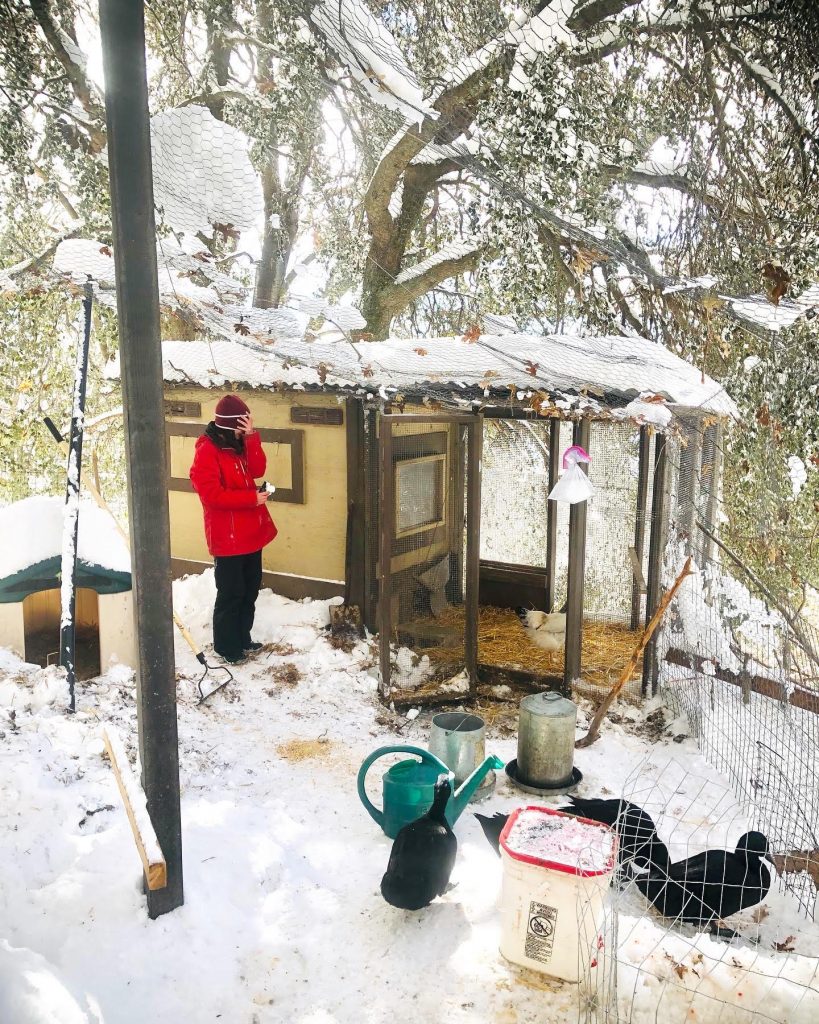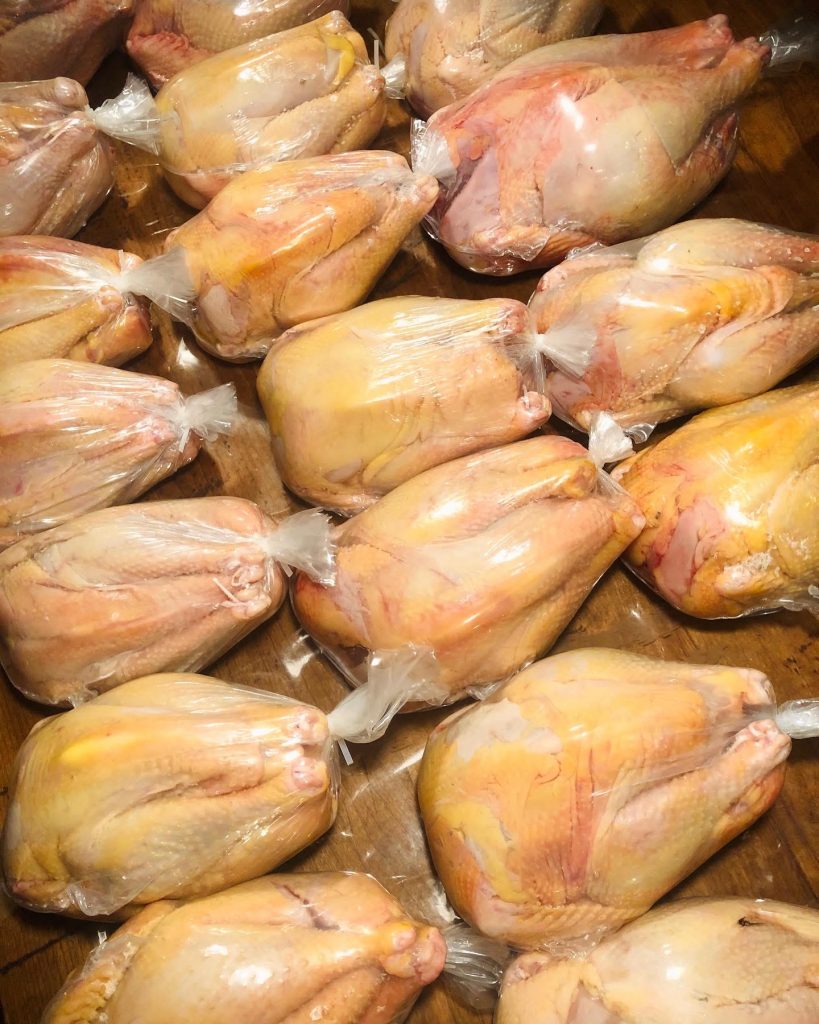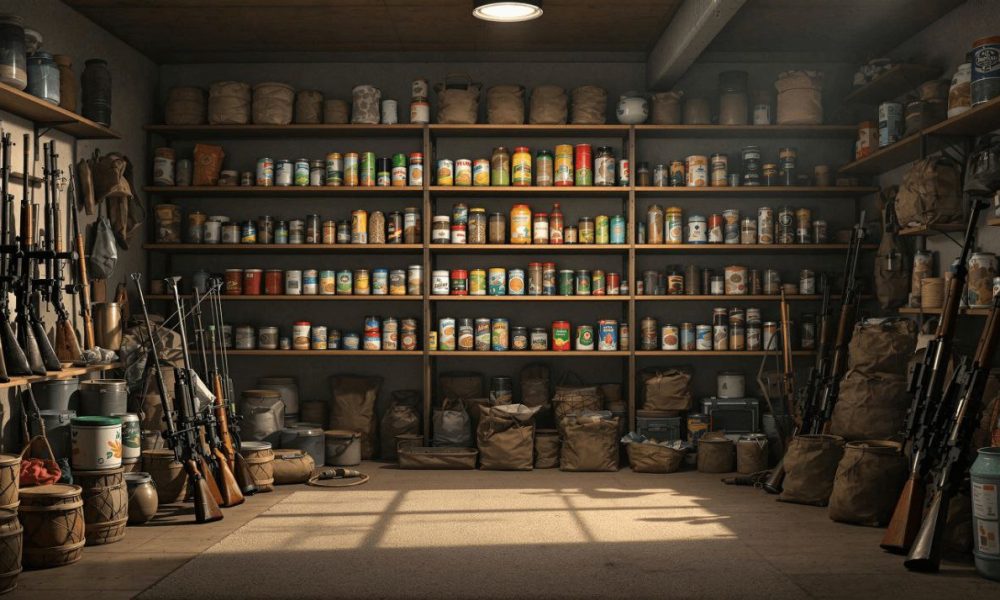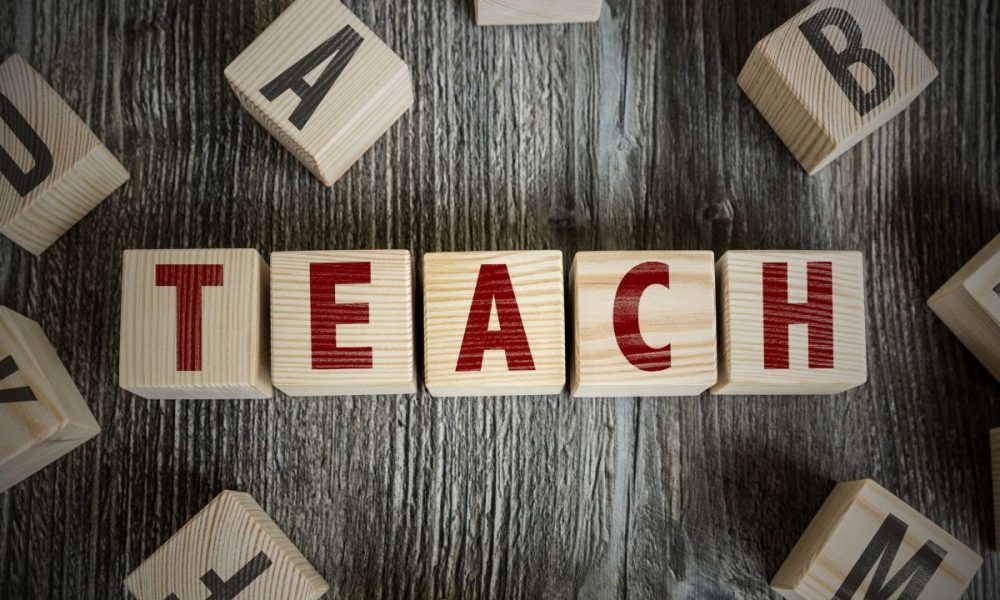The Lessons Learned Through Failure and Loss…
A winter storm was rolling in, and that puts any homestead into high gear getting ready for the snow and freezing. The high anxiety and pressure gets everyone moving to prep the farm for the coming snow. It’s quickly checking fences, filling and covering feed, adding extra fluff, filling and moving water troughs all at double speed. There was so much to think about and do with storms, but with a team of six helping , we were able to settle down around dusk, just before the storm rolled in.
A massive three feet of heavy snow fell quickly over the next twenty-four hours. The first night of the storm, our two puppy livestock guardian dogs, named Enoch and Eden, were barking relentlessly. Since we live in a community surrounded by other cabins, we have to be conscious of the non-stop barking that can naturally occur with LGDs. So, we have training crates for them to sleep in until fully trained. When they wouldn’t quit barking at 5 A.M., I turned their crates around so they’d be quiet and stop being stimulated by looking out over the animals. It worked, and I went back to bed.
An hour later, it was time to get up and feed the animals. I let Enoch and Eden out, and they immediately went crazy barking and running towards the main chicken coop. I wasn’t sure if this was simply an act of adolescence, or was there a predator there needing my attention?
The phone rang pulling me away; a call from my work letting me know that it was a snow day and I wouldn’t be teaching students today. Yeah, extra sleep! Things were looking good. But, the loud barking brought me back to the situation at hand.
I hesitantly stepped out into the storm to take a look. I now had my “fancy pants” on, it was freezing outside, and I could actually sleep in another hour. So, I called the dogs back, locked them in their kennels, and went back inside where it was warm. All was well in the world. I fell back asleep.
My eldest son who is about thirteen took the liberty of checking on the birds for me when he noticed Mom and Dad were still sleeping past the usual time. That was when he ran inside into our room. With tears streaming down his face, barely able to speak, he said he thinks that all the birds froze to death. We couldn’t believe it was that cold, and we ran out to check. Upon further inspection, we found the roof caging had broke making it vulnerable to predators. That’s when, after closely looking at the birds, we knew it was a bobcat that had killed nineteen of our chickens and four of our ducks.

When I first looked at the massacre, I must admit, I didn’t handle it very well. Immediately, I knew they were dead because of my mistake. I let out a very loud curse in front of my children and wife, and blasted out the energy and shame I was feeling with emotion. It was not the right thing to do. It’s those moments in life, a family needs the father to be the strength. And, I failed them.
Homesteading puts your learning on an exponential curve. The extreme highs and lows that come several times a year for most, come almost daily when you homestead. It’s God’s accelerated school for learning Truth. I had to humble myself, pray, and quickly return as the role of father.
We processed twenty-three chickens that day. We had all the equipment, for we planned to process some birds in the future, however God had other plans. The saving grace to the horror and death we all experienced was to not let the meat go to waste. Our meat fridge was low on beef, but after processing the entire day as a family, our meat fridge was full again. Every lesson in suffering and hardship, God can work towards His glory.

The birds were dead because of me. If a homesteader gets weak, for even one night, they can lose nine months effort in the blink of an eye. In all honesty, I did not handle this test very well but took a great lesson with it. I apologized to my family, took responsibility for mistakes I made, burned my “fancy pants” and grew from the experience. For that was all I could do. The damage was done.
Tough Lessons Learned
This heavy and terrible experience did not break our spirit though. That week, the fences and roofing were reinforced and repaired. We all stepped up to take better care of all the animals we still had in our care. When the dogs bark, I now head their warning. I get up several times a night now when the dogs bark. It’s tiring, but the alternative is dead animals and a deflated family that feels like there’s no point. Laziness is not an option with this much responsibility.
Living on a homestead, it does seem that I’ve asked for some accelerated learning. When the people started closing their businesses, I knew this was the “Go Time”. I asked the Lord to allow me to finish strong and to teach me what I needed to know in order to finish the race worthy of Him. He said, “Build your homestead and control your mouth.” I thought that would be such an easy task, especially the mouth part. I actually felt insulted. Boy, was I wrong and massively humbled.
For all you Bears out there that are already homesteading, you have my utmost honor and respect. If you’ve been doing it for some time successfully, I can guarantee you are a human of high character and quality. I hope to one day reach that level. For those of you with little garden experience or a few chickens or quails, God Bless you! You are pushing yourself and learning serious life lessons daily. If you are still waiting for the right opportunity to begin, that time is now. Life’s lessons speed up when you’re in charge of other’s lives.
When tragedy at the homestead hit. It taught me much more than how to fix fences, check for predators, and process meat. I learned that I have much to learn about character and leadership when life’s challenges come my way. As a Father, how I handle the situation, in what I say and do, matters when the inevitable lessons of homesteading come my way.
If you want to accelerate your learning, it’s time to take more responsibility for others, and in turn, you will get more responsibility over your own self. There is no hiding responsibility when homesteading. Yes, I failed. It was hard on the family. But, the rewards you get from overcoming challenges, learning from mistakes, and becoming better as a team is worth the struggle.




